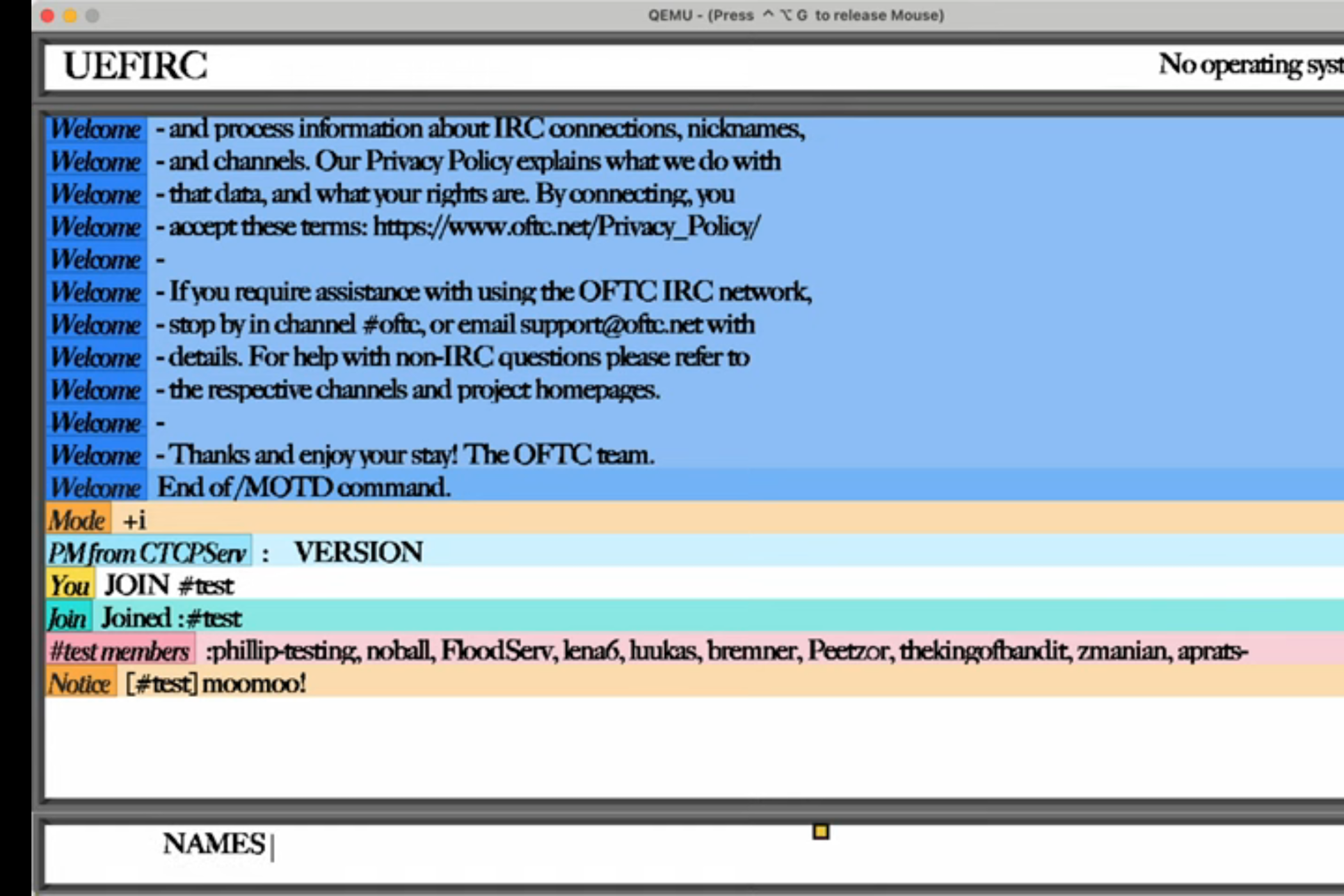latest

Remember waiting for the BIOS to finish loading? In the space of a decade or two, we've really sped up how fast a computer can boot up, from staring at endless white text on a black background to arriving at the operating system's login page within seconds. But what if you didn't even have to wait that long to talk to your friends? If you're truly impatient (or insane) enough, someone has created an app that lets you run an IRC client within the UEFI. Why? Not even they really know.

Developers port Windows 10 on ARM to the Samsung Galaxy S8 and other Snapdragon 835-powered phones
A homebrew UEFI firmware enables the Snapdragon 835-powered Samsung Galaxy S8 to boot the ARM version of Windows 10. Read on to know more!
Developer-friendly OEMs like OnePlus and Sony are known for publishing kernel sources as well as device trees; the latter serves as a mechanism to describe the hardware to the Linux-based kernel of Android on ARM platform as soon as the primary bootloader boots. Operating systems like Microsoft Windows, however, utilize the Advanced Configuration and Power Interface (ACPI) for the same task, while the low level hardware initialization is handled by the Unified Extensible Firmware Interface (UEFI) nowadays. Interestingly, it is possible to port UEFI and ACPI support to existing ARM devices with ample hacking, thus you can technically boot Windows 10 on devices like the Raspberry Pi.

EFIDroid: A Second-Stage Bootloader Using UEFI Firmware to Multiboot [XDA Spotlight]
Multi-booting is a complicated subject, and to enable it often requires patches to your kernel or recovery. EFIDroid is a tool that works around that.
Dual booting and multi-ROM implementations have been a major challenge for Android developers for quite some time. Previous solutions have typically needed substantial device-specific development and further support from ROM developers. Even then, they’re often more complicated than they’re worth for the average ROM user. EFIDroid seeks to remedy all of this.



